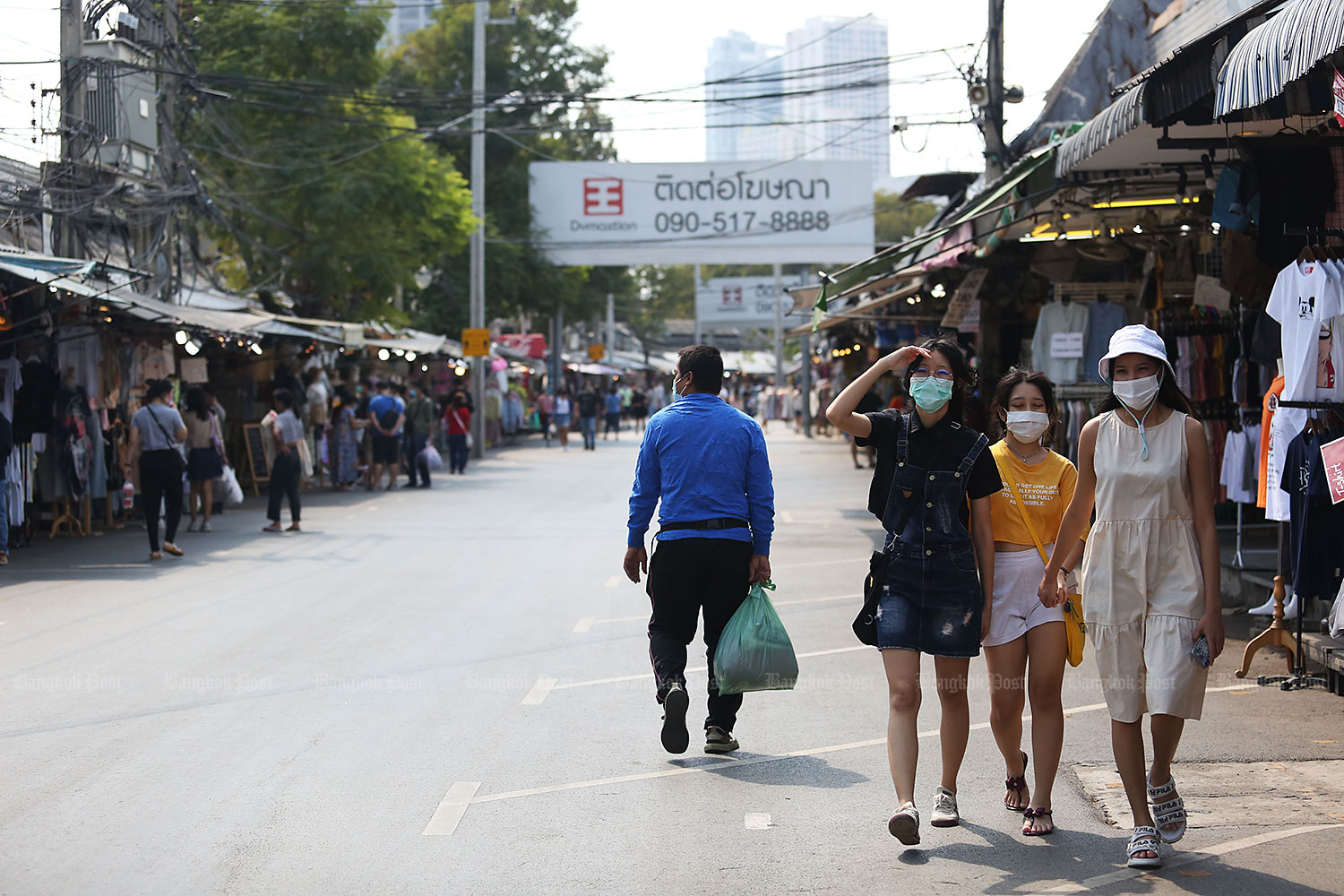
Thailand's economic activity showed signs of slowing in the second quarter as a result of the higher cost of living, says World Bank Thailand.
The bank's monthly economic monitor in May reported indicators of economic activity in the second quarter this year show signs of a slowdown.
Survey results reveal the rising cost of living, in particular higher energy costs attributed to the war in Ukraine and pandemic concerns, have affected consumer spending.
The mobility index remained unchanged in April and May at 16 points, despite the decline in new Covid-19 cases to an average of 8,193 per day during the first two weeks of May, down from more than 20,000 cases in March and April.
In contrast, the mobility index of regional peers including Malaysia, Indonesia and the Philippines improved substantially as new cases dropped.
The mobility indices in Indonesia and the Philippines have surpassed their pre-pandemic levels, the World Bank said in the report.
The private consumption index for Thailand in March fell 0.9% month-on-month, while the consumer confidence index in April declined for the fourth consecutive month to 40.7 points, down 1.3 points from the previous month.
The World Bank report said inflation continued to stay above the Bank of Thailand's target range, driven by energy and food prices.
Headline inflation fell slightly to 4.7% in April, after rising to a 13-year high in March (5.7%), yet remained higher than for regional peers.
Inflation continued to breach the central bank's target range of 1-3% for the fourth consecutive month.
Energy price inflation declined slightly in April as global oil prices edged lower.
In contrast, raw food prices continued to rise to 3.5% year-on-year, while core inflation stayed at 2.0%.
Rising energy prices are expected to continue to be the major contributor to higher headline inflation, as the prices of electricity and cooking gas are set to increase further in May and June.
Though the cap on diesel prices at 30 baht per litre ended on May 1, the government bumped it up to 32 baht per litre and plans to subsidise half of the price above 30 baht per litre.
However, inflation expectations remain well-anchored, with expectations below 2% for the next 12 months as well as five years, according to the central bank's survey of businesses and the consensus forecast.
However, the World Bank reported the Thai economy grew faster than expected in the first quarter of 2022, supported by loosening Covid-19 restrictions, continued stimulus measures and strong exports.
For the first quarter, the Thai economy posted 2.2% growth year-on-year, up from 1.8% in the previous quarter.







